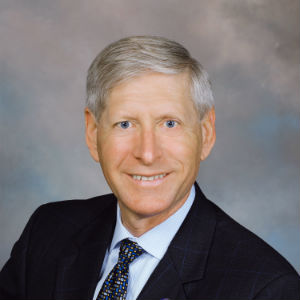
“Education remains a top priority for Virginians and I am committed to ensuring every student in Virginia receives the best education possible, regardless of his or her ZIP code,” said Landes. “This comprehensive legislative package will help students in K-12, as well as our students of higher education. As Chairman of the House Education Committee, I look forward to working with my colleagues in the House and Senate, as well as Governor Northam, to implement education reforms and innovations that will ensure our children possess the tools necessary to succeed in today’s ever-changing economy.”
To date, Delegate Landes has introduced House Bills 3, 344, 347, 897, 914, 1125, 1127, 1165, and 1176 to address educational issues. Summaries of each piece of legislation is listed below.
House Bill 3, Dual enrollment courses; quality standards; universal transfer course credit, provides certainty for high school students enrolled in qualifying dual enrollment courses that higher education institutions will accept those credits. This will save students and their families time and money by ensuring dual enrollment programs are working as intended.
House Bill 344, Public institutions of higher education in the Commonwealth; campus free speech; policies, training, and reports, requires each public institution of higher education in the Commonwealth to establish policies regarding free speech on campus; develop training materials and implement training programs on such policies; and post conspicuously on its website and annually update a report relating to free speech on campus.
House Bill 347, State Council of Higher Education for Virginia; longitudinal data, requires the data that the State Council of Higher Education for Virginia annually collects and publishes on the percentage of graduates of public institutions of higher education and certain nonprofit private institutions of higher education in the Commonwealth who are known to be employed in the Commonwealth, and the average salary and the average higher education-related debt for such graduates to be disaggregated by degree program and level.
House Bill 897, Governing boards of public institutions of higher education; six-year plans, specifies that the six-year plan and amendments to or affirmation of such plan that are required to be submitted no later than July 1 of each year to various executive and legislative entities and individuals by the governing board of each public institution of higher education shall be a preliminary version and prohibits any such preliminary plan, amendments, or affirmation from being posted on the General Assembly’s website.
House Bill 914, School bus operators; training, codifies hourly requirements that decrease from 24 to six the number of hours currently required in regulation for behind-the-wheel training for school bus operator applicants who do not possess a commercial driver’s license; decrease from 24 to four the number of hours currently required in regulation for classroom training and from 24 to three the number of hours currently required in regulation for behind-the-wheel training for applicants currently possessing a commercial driver’s license; and decrease from 24 to four the number of hours currently required in regulation for classroom training and from 24 to three the number of hours currently required in regulation for behind-the-wheel training for applicants previously trained and approved to operate a school bus who were not removed for cause from a prior position operating a school bus.
House Bill 1125, Teacher licensure, makes several changes to the teacher licensure process, including allowing an individual who seeks a provisional teacher license to satisfy certain licensure requirements during the period of provisional licensure; permitting the Board of Education to extend, for up to two additional years, the three-year provisional license of any teacher who requires additional time to satisfy the requirements for a renewable license; permitting teachers with a valid out-of-state license, with full credentials and without deficiencies, to receive licensure by reciprocity without passing additional licensing assessments; eliminating the requirements that teachers seeking initial licensure or renewal of a license; permitting any division superintendent to apply to the Department of Education for an annual waiver of the teacher licensure requirements for any individual whom the local school board hires or seeks to hire to teach in a specific content area who demonstrates exemplary content knowledge in such area; and specifying that for the purpose of Board of Education regulations for the approval of teacher education programs, the term “education preparation program” includes four-year bachelor’s degree programs in teacher education.
House Bill 1127, Career and technical education; three-year licenses; eligibility and requirements, makes changes to three-year career and technical education teacher licenses by removing the cap on licensee teaching hours and permitting licensees to teach up to full time, expanding eligibility for such licenses to any individual who has at least two years of experience as a teaching assistant in the school division in the specific career and technical education subject area in which the individual seeks to teach and meets all other applicable eligibility criteria, and increasing from one year to two years the period during which the employing school board is required to assign a mentor to supervise a licensee.
House Bill 1165, Education Improvement Scholarships tax credits; pre-kindergarten eligibility, expands the Education Improvement Scholarships tax credits program by including, as eligible scholarship recipients, children enrolled in, eligible to attend, or attending nonpublic pre-kindergarten programs. The maximum annual scholarship that a child will receive is the lesser of the child’s actual educational expenses or the state share of the grant per child under the Virginia Preschool Initiative for the locality in which the child resides.
House Bill 1176, Commission on the Future of Public Elementary and Secondary Education established, establishes the 20-member Commission on the Future of Public Elementary and Secondary Education, consisting of seven members of the House Committee on Education, six members of the Senate, five nonlegislative citizen members, the Superintendent of Public Instruction or his designee, and the Secretary of Education or his designee, for the purpose of ensuring a deliberate, thoughtful, coordinated, and year-round approach to legislative education reform in the Commonwealth. The bill requires the Commission to collaborate with the Board of Education, the Department of Education, the Standards of Learning Innovation Committee, and other interested stakeholders to study the need for revisions to or reorganization of the Standards of Quality with a particular emphasis on the effective use of educational technology, emerging education issues in the Commonwealth, and the future of public elementary and secondary education in the Commonwealth.
Landes represents the 25th House District, which includes parts of Albemarle, Augusta, and Rockingham Counties. Landes is currently serving his twelfth term in the Virginia House of Delegates. Visit SteveLandes.com for additional information.










